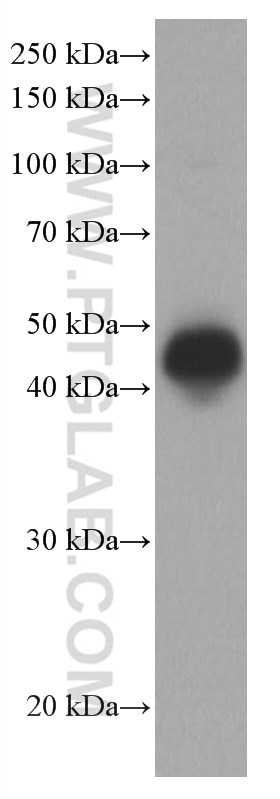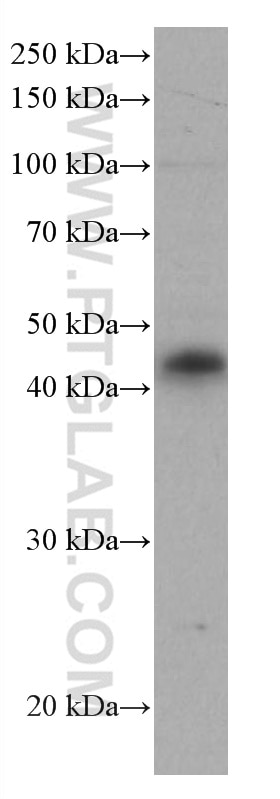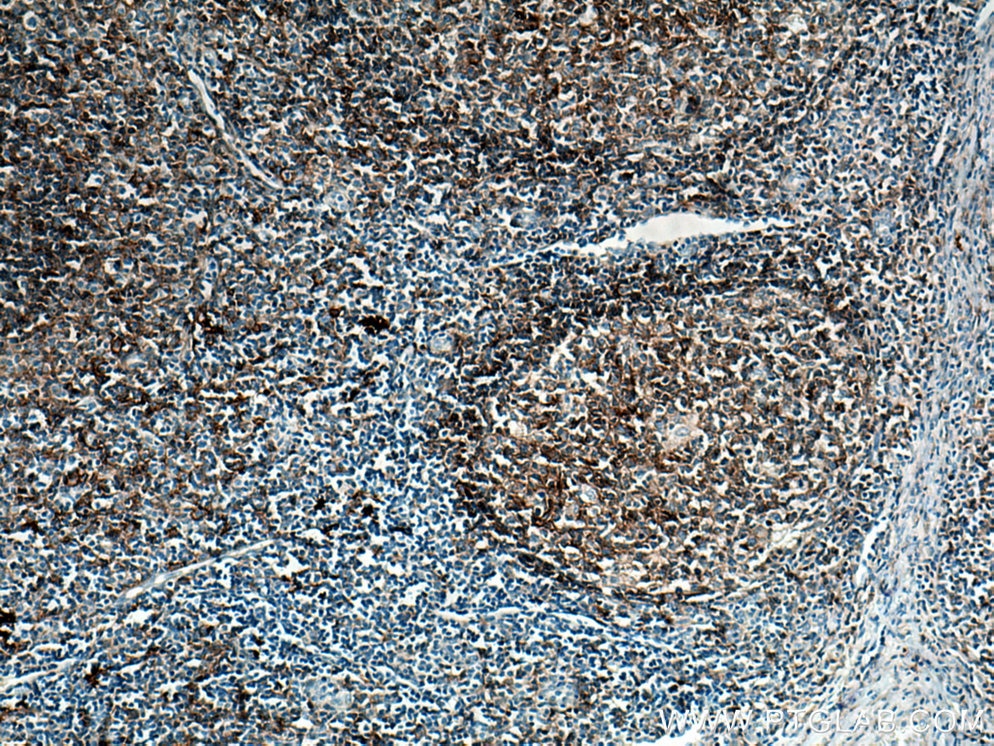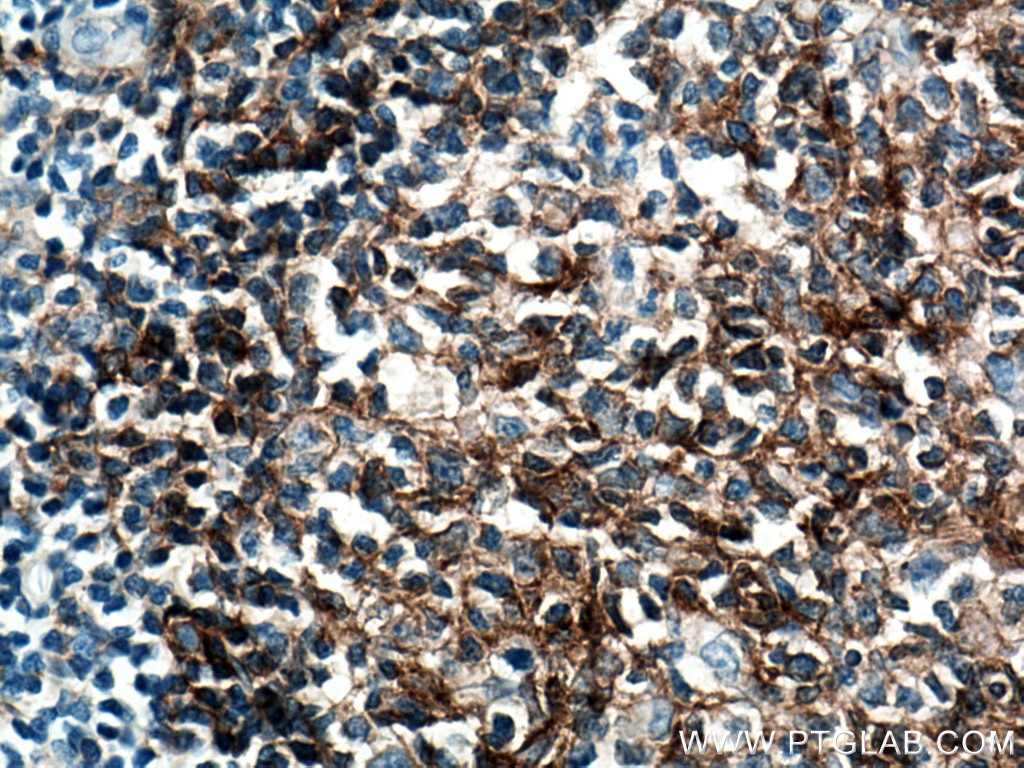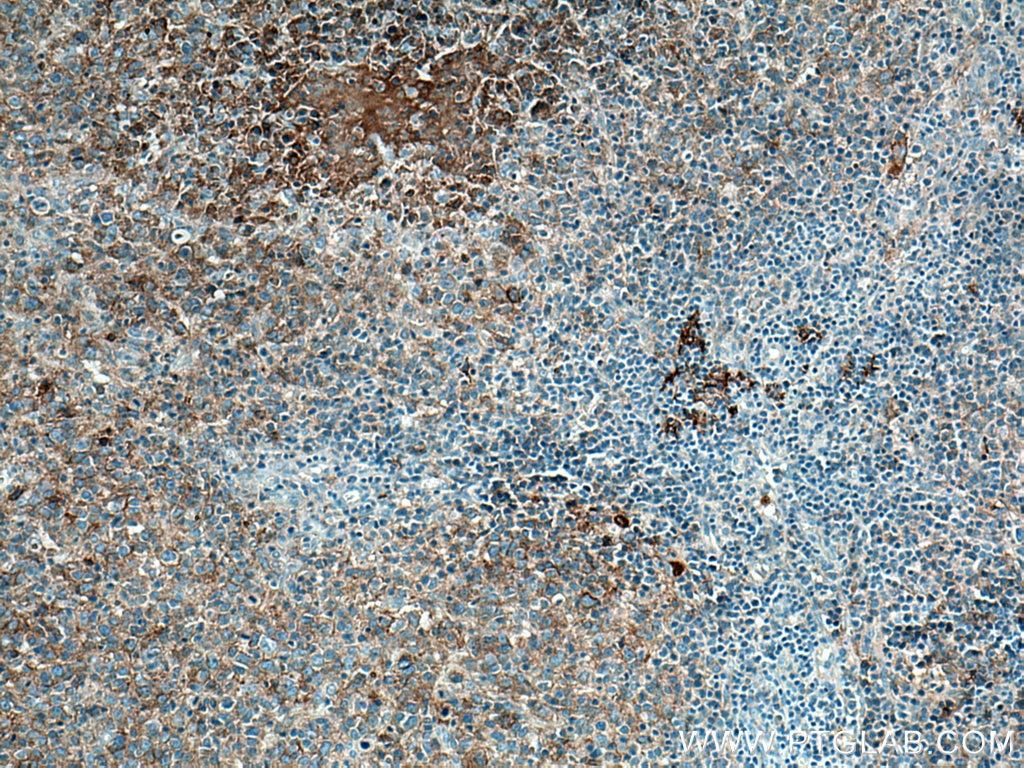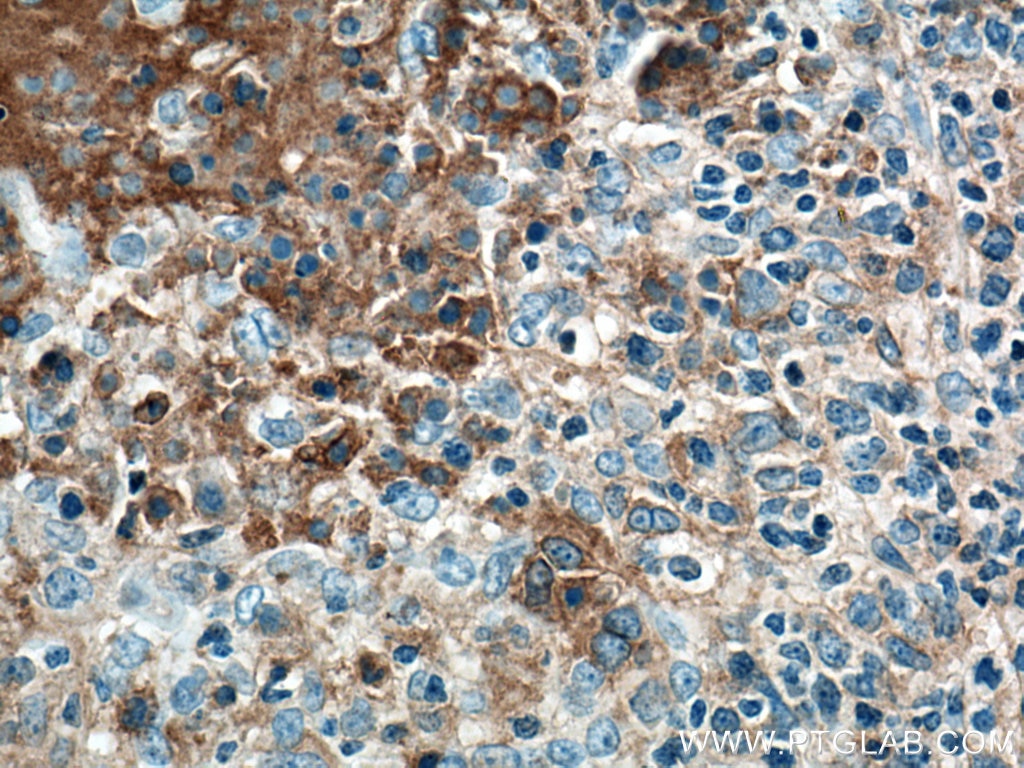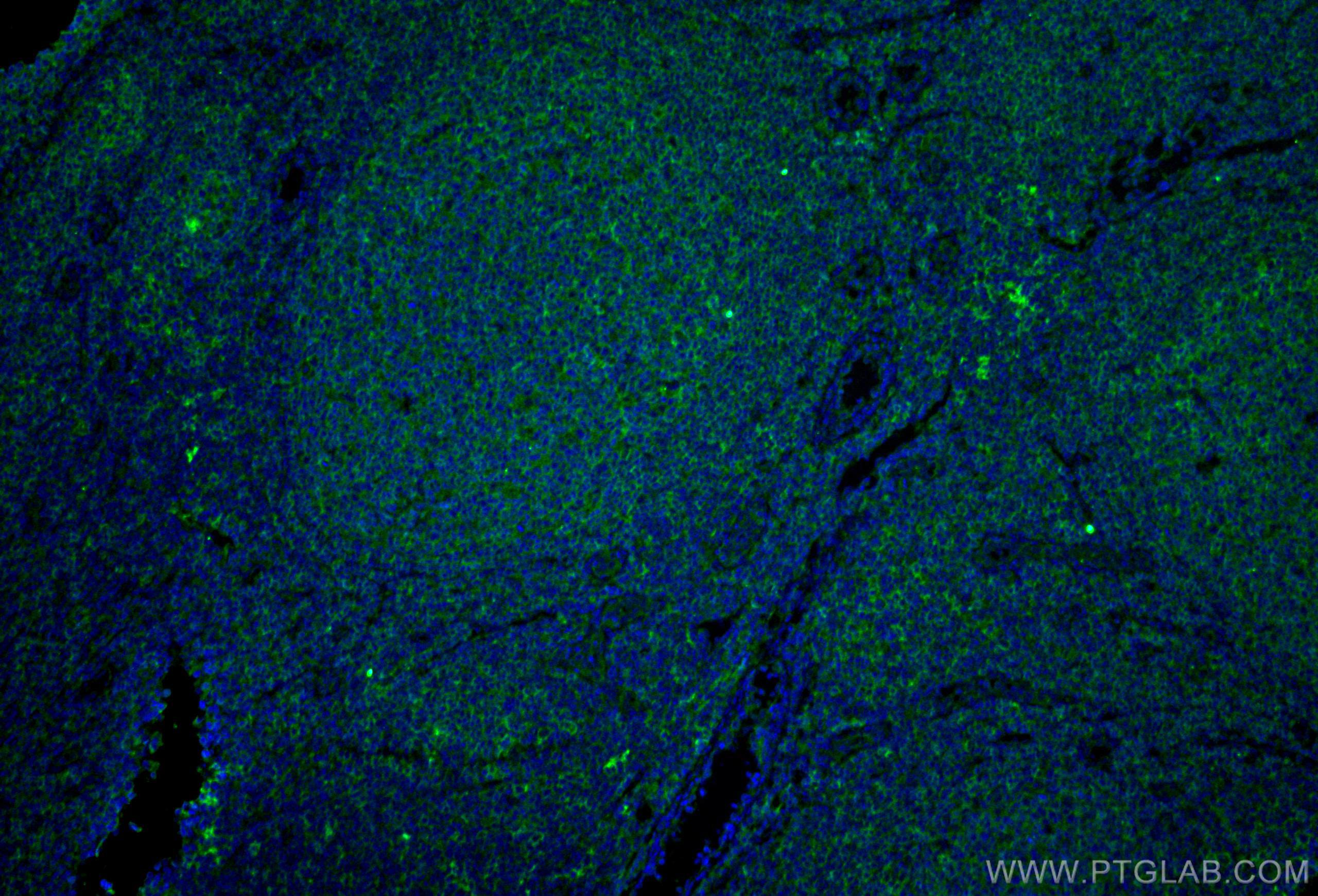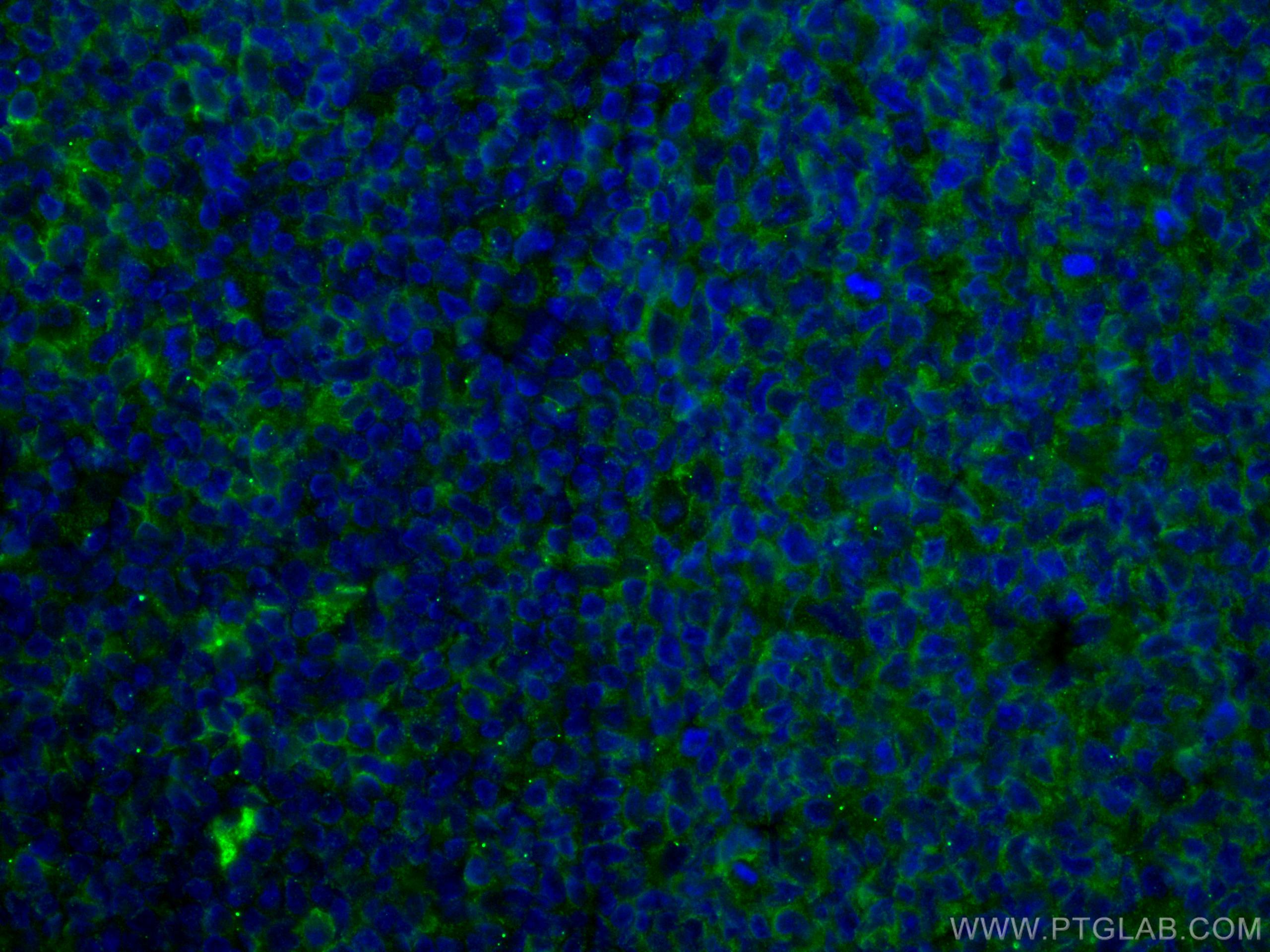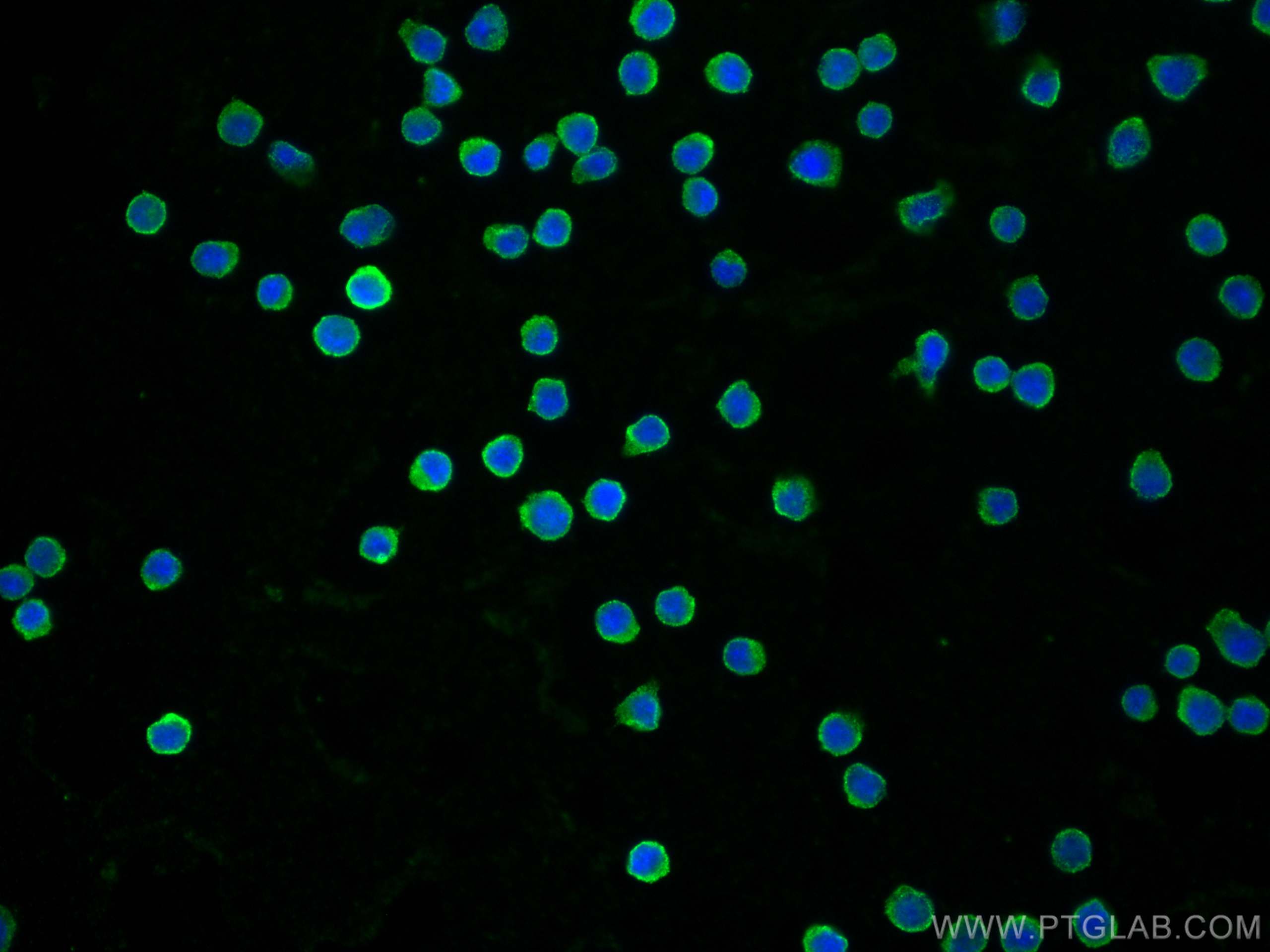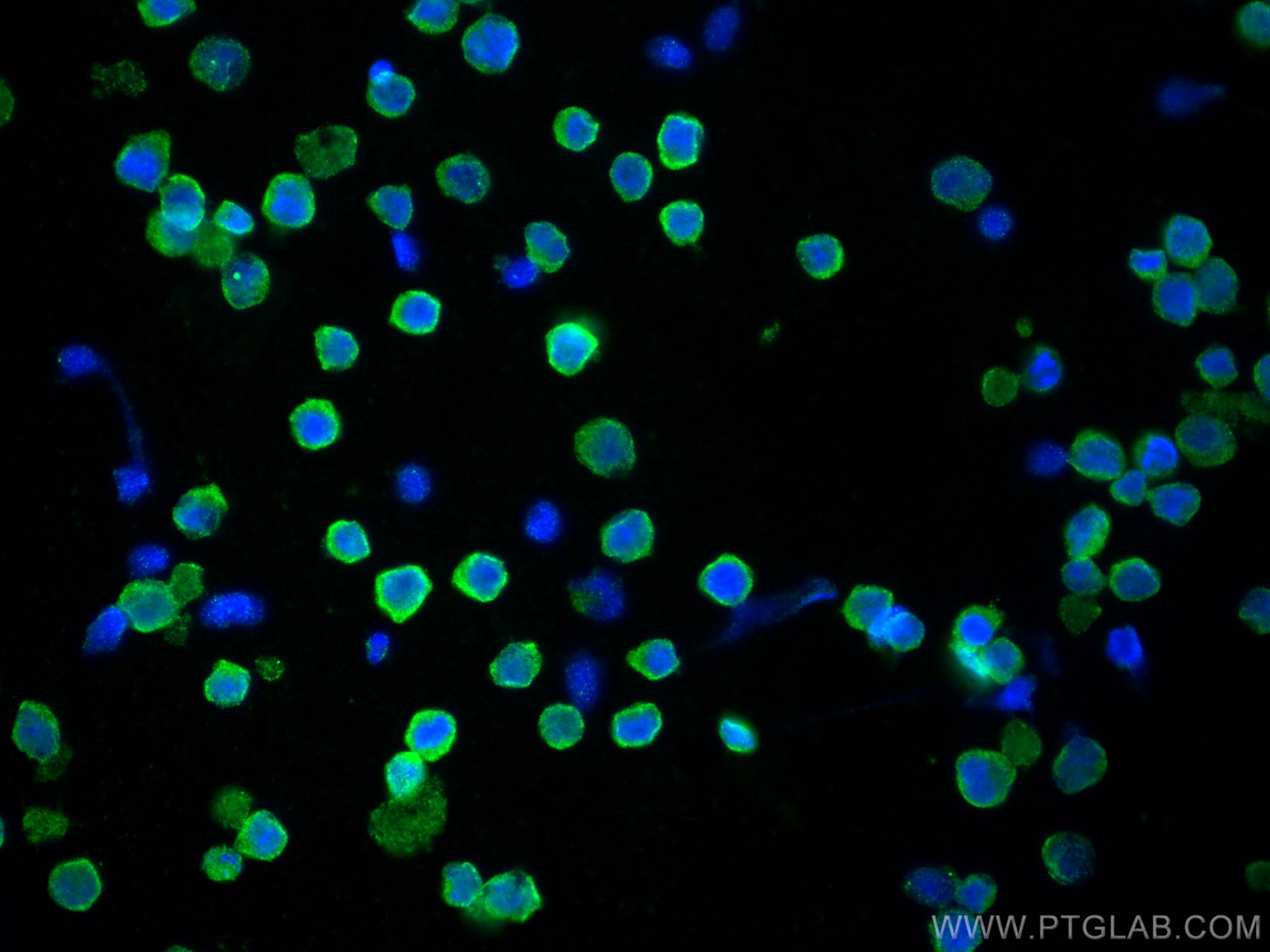Product Information
66965-1-PBS targets CD40 in WB, IHC, IF/ICC, IF-P, Indirect ELISA applications and shows reactivity with human samples.
| Tested Reactivity | human |
| Host / Isotype | Mouse / IgG1 |
| Class | Monoclonal |
| Type | Antibody |
| Immunogen | CD40 fusion protein Ag28040 Predict reactive species |
| Full Name | CD40 molecule, TNF receptor superfamily member 5 |
| Calculated Molecular Weight | 277 aa, 31 kDa |
| Observed Molecular Weight | 43 kDa |
| GenBank Accession Number | BC012419 |
| Gene Symbol | CD40 |
| Gene ID (NCBI) | 958 |
| ENSEMBL Gene ID | ENSG00000101017 |
| RRID | AB_2882288 |
| Conjugate | Unconjugated |
| Form | Liquid |
| Purification Method | Protein A purification |
| UNIPROT ID | P25942 |
| Storage Buffer | PBS only, pH 7.3. |
| Storage Conditions | Store at -80°C. |
Background Information
Cluster of differentiation 40 (CD40) is a costimulatory protein located on antigen presenting cells and is required for their activation. CD40 is a member of the tumor necrosis factor (TNF) receptor (TNFR) family.
What is the molecular weight of CD40?
The molecular weight of CD40 is 43 kDa.
What is the cellular localization of CD40?
CD40 can be secreted by cells or found in the cell membrane.
What is the tissue specificity of CD40?
CD40 is expressed in B cells and primary carcinoma cells but is also found in dendritic cells and macrophages (PMID: 10209159).
What is the function of CD40?
CD40 acts as a receptor for TNFSF5/CD40LG, which is expressed on activated T cells. This interaction is essential for B cell proliferation, expression of activation markers, immunoglobulin production, and isotype switching (PMID: 8809473). This interaction is also crucial for the formation of memory B cells and germinal centers, and signaling through CD40 prevents apoptosis of germinal center B cells.
What is the role of CD40 in disease?
Defects in CD40 lead to hyper-IgM immunodeficiency syndrome type 3 (HIGM3) (PMID: 11675497). This is an autosomal recessive disorder that includes the inability of B cells to undergo isotype switching, a key step in the final differentiation of the humoral immune response, and an inability to mount an antibody-specific immune response.
